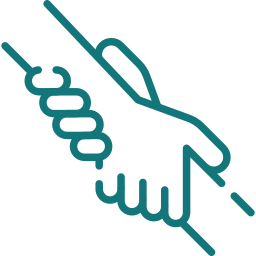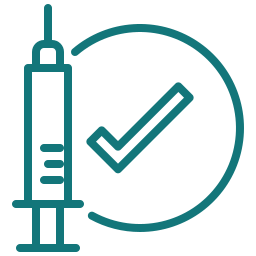How Depression Affects the Brain?
Depression isn’t just a fleeting feeling of sadness or a bad day at work. It’s a profound mental health condition that affects millions of people worldwide, altering not just the mood, but also the very structure and function of the brain. Understanding how depression affects the brain can help demystify this condition and encourage more compassionate, effective treatment approaches. Let’s dive into the brain to see what really happens when depression strikes.
The Brain’s Architecture and Depression
The brain is a complex organ composed of various regions, each responsible for different functions, from regulating emotions to managing memory and decision-making. Depression disrupts the harmony of these regions, leading to noticeable changes in both structure and function.
1 ) The Prefrontal Cortex: The Decision-Maker
The prefrontal cortex, located at the front of the brain, is crucial for decision-making, problem-solving, and controlling emotional responses. Studies have shown that individuals with depression often have a smaller prefrontal cortex. This shrinkage can impair their ability to make decisions and regulate emotions effectively, contributing to the feeling of being overwhelmed by even simple tasks.
2 ) The Hippocampus: The Memory Keeper
The hippocampus is essential for memory formation and emotional regulation. In people with depression, the hippocampus tends to be smaller in size. Research indicates that chronic stress, a common trigger for depression, can damage neurons in the hippocampus, leading to memory problems and difficulty in processing emotional experiences.
3 ) The Amygdala: The Fear Center
The amygdala, known for its role in processing fear and other intense emotions, often becomes overactive in depressed individuals. This heightened activity can lead to an increased perception of negative emotions and a prolonged response to stress, making it harder for individuals to move past negative experiences.
Chemical Imbalances: The Neurotransmitter Tango
Neurotransmitters are the brain’s chemical messengers, playing a vital role in mood regulation. Depression is often linked to imbalances in key neurotransmitters like serotonin, dopamine, and norepinephrine.
1 ) Serotonin: The Mood Stabilizer
Serotonin is crucial for mood regulation, sleep, and appetite. Low levels of serotonin are associated with feelings of sadness, anxiety, and irritability. Antidepressants like SSRIs (Selective Serotonin Reuptake Inhibitors) work by increasing serotonin levels in the brain, helping to alleviate depressive symptoms.
2 ) Dopamine: The Reward Pathway
Dopamine is involved in the brain’s reward system, influencing motivation and pleasure. Depressed individuals often have reduced dopamine activity, which can lead to anhedonia – a lack of pleasure in previously enjoyable activities.
3 ) Norepinephrine: The Alertness Agent
Norepinephrine affects alertness and arousal. Imbalances in this neurotransmitter can result in fatigue, concentration difficulties, and mood swings, common symptoms in depression.
Inflammation and Depression: The Hidden Link
Recent studies have uncovered a link between depression and inflammation in the brain. Inflammatory markers, such as cytokines, are found at higher levels in people with depression. This inflammation can disrupt the functioning of neurotransmitters and contribute to the structural changes seen in the brain. Understanding this link opens new avenues for treatment, suggesting that anti-inflammatory medications could potentially help manage depression.
The Numbers Speak: Depression in Statistics
Global Prevalence: Over 264 million people worldwide suffer from depression, according to the World Health Organization (WHO).
Economic Impact: Depression is a leading cause of disability, contributing to a global economic loss of about $1 trillion annually due to reduced productivity.
Treatment Gaps: Despite its prevalence, nearly two-thirds of people with depression in developed countries and up to 90% in developing countries do not receive adequate treatment.
Moving Forward: Hope on the Horizon
Understanding how depression affects the brain underscores the importance of seeking treatment. Advances in neuroscience and psychiatry are continually improving our ability to diagnose and treat depression. Therapies such as cognitive-behavioral therapy (CBT), medications, lifestyle changes, and emerging treatments like transcranial magnetic stimulation (TMS) and ketamine infusion are offering new hope to those affected.
If you or someone you know is struggling with depression, remember that help is available. A combination of professional support, medication, therapy, and self-care can make a significant difference. The more we understand about depression and its impact on the brain, the better equipped we are to combat this pervasive and debilitating condition.
Conclusion
Depression is more than just a mental health issue; it’s a complex interplay of emotional, structural, and chemical changes in the brain. By shedding light on these changes, we can foster a deeper understanding and empathy towards those affected. Let’s continue to educate ourselves and support each other in the journey towards mental wellness.






















